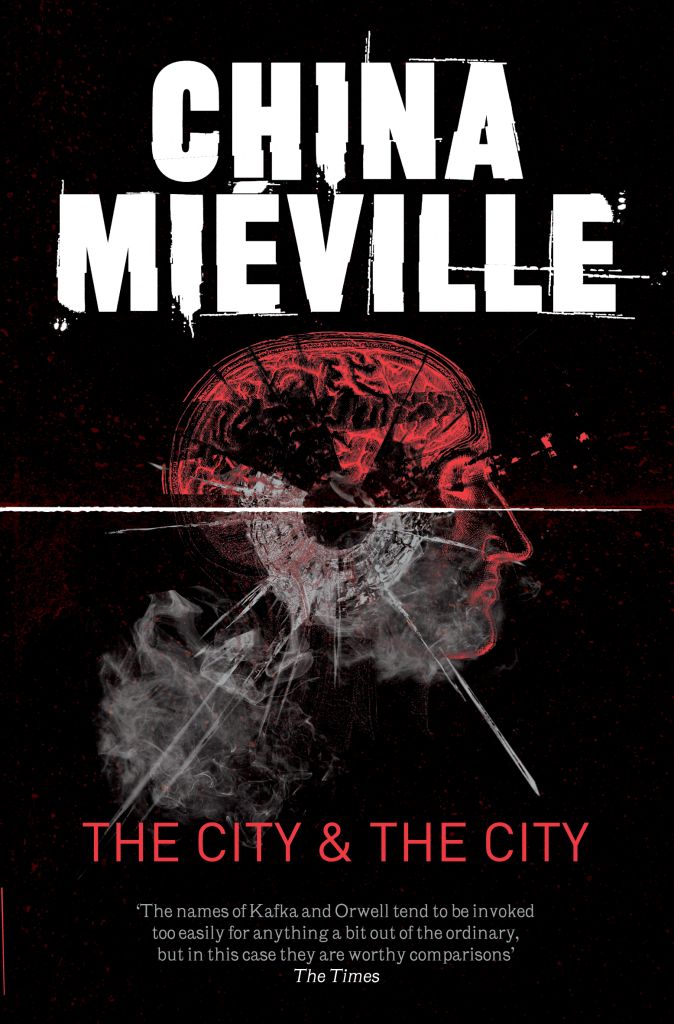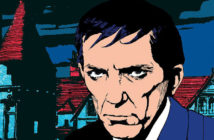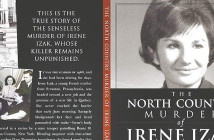China Mieville hit three home runs with Perdido Street Station, The Scar, and Iron Council, but has since tripped with his latest novel, The City & the City. The author proved in his earlier works just how worn out the speculative genres of fiction are and how he’s the perfect guy to provide a much-needed facelift. Therein lays the problem with his current book, a crime novel that looms in between a netherworld of smashing success and sad disappointment: he forgoes the very talents that define him as the new voice of weird fiction.
Upon opening the hardcover edition of “The City & the City,” the front flap provides the following summary from the novel’s publisher, Del Rey: “When a murdered woman is found in the city of Beszel, somewhere at the edge of Europe, it looks to be a routine case for Inspector Tyador Borlu of the Extreme Crime Squad. But as he investigates, the evidence points to conspiracies far stranger and more deadly than anything he could have imagined.
“Borlu must travel from the decaying Beszel to the only metropolis on Earth as strange as his own. This is a border crossing like no other, a journey as psychic as it is physical, a shift in perception, a seeing of the unseen. His destination is Beszel’s equal, rival, and intimate neighbor, the rich and vibrant city of Ul Qoma. With Ul Qoman detective Qussim Dhatt, Borlu is enmeshed in a sordid underworld… As the detectives uncover the dead woman’s secrets, they begin to suspect a truth that could cost them and those they care about more than their lives. What stands against them are murderous powers in Beszel and in Ul Qoma: and, most terrifying of all, that which lies between these two cities.”
To understand Mieville’s writings, his key talent needs to be recognized: world-building. The scope of his fictionalized world of Bas-Lag (the setting of Perdido Street Station, The Scar, and Iron Council) is nothing short of breathtakingly daunting. The three books established in Bas-Lag are tomes of the imagination, exploring the limitless creativity of someone willing to breathe life into a dream.
The City & the City drops the depth of Mieville’s world-building prowess. Beszel’s trumpeted bleak setting is plain and lackluster; it conjures up the image of a war-torn city in Bosnia instead of a freshly imagined location. Beszel’s metropolitan rival, Ul Qoma, left me yawning too, despite all of the fluff about the area’s purported advancement. I’m told that Beszel is bleak and Ul Qoma is bustling, and that’s that. There’s nothing inspiring to grab hold of, nothing magical to sink into. They simply are.
Mieville’s imagination is shackled to reality in this novel, ultimately undermining him. There are various points in the narrative where I began to loose myself in the fantasy, only to be jolted back with a tacky reference to Harry Potter or David Beckham. The novel would have worked better it was set in two apposing cities of Bas-Lag, rather than two faux European cities that did little to excite within me a nerd-like glow.
In his previous books, Mieville’s language was fluid and often-times beautiful, acting as a siren’s song to lure his readers into his bizarre world. But there were several chapters in The City & the City that floated dead in the water, swollen with monotonous exposition and droning paragraphs. There’s usually no payoff in the endless X-Y-Z description Mieville puts to paper, other than to push the plot along. The noir genre seems to work against the author: hardboiled crime scenarios are not his strengths.
Despite my fire and brimstone, “The City & the City” isn’t a bad novel. Thought-provoking when it wants to be, the book works best when it’s doing what it should be doing: telling a crime story. When Borlu and his investigative compatriots are chasing down leads, dodging gunfire, and traversing city slums, the book is enchanting. After crawling through the first 100 pages or so, the detective story picks up and turns into a fun ride.
Even though I would have liked more fantasy, Mieville does throw one enticing bone: Breach. I was glued to the page whenever this shadowy organization was mentioned, which acts as a clandestine force that monitors any, well, breaches made between Beszel and Ul Qoma. Illegally crossing over from one city to the other, even by something as harmless as a stare, invokes Breach. There are no plea bargains with these guys, adding some much-needed flavor to the story. Mieville knows exactly what he’s doing with the creation of Breach—aside from adding a mysterious supernatural element, the organization tosses into the air questions about civil liberties versus security.
I’m tough on The City & the City. I have to be—Mieville’s legacy is already something firmly established in my life, though it’s only been a few years since I started reading his work. Though his current title isn’t his strongest, it still has echoes of his past literary labors. The book can be boring and flat, but it can also be intriguing and fun. Thankfully, the tale had a compelling finale that me grateful I stuck with it until the last page.
This book review was originally published by Comic News.




